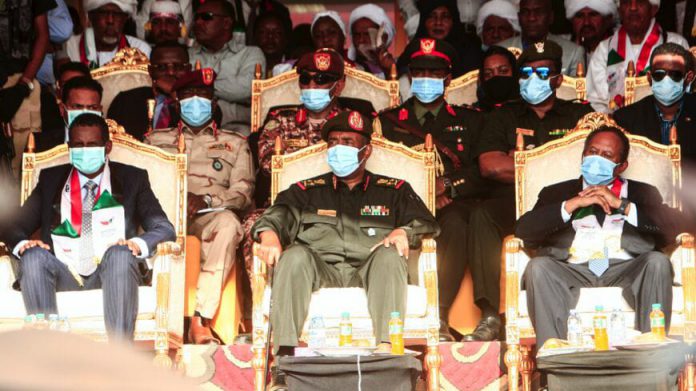Sudan and South Sudan has signed a series of agreement last month regarding the resumption of trade and increasing cooperation in transportation and security.
The signing came during a three-day visit by Sudan’s Prime Minister Abdalla Hamdok to Juba on Aug. 21, during which he met with South Sudanese President Salva Kiir and other officials. Hamdok led a delegation including the ministers of defense, trade, transportation and foreign affairs, in addition to a number of senior officials from Khartoum.
Prior to the South Sudanese secession in 2011, many basic commodities used to be transported from the northern to the southern parts of the same country. Sudanese economist Mohamed al-Nayer told Al-Monitor the situation is different now. Had the two countries started trade exchange immediately after the secession 10 years ago, significant economic growth would have been achieved in the two countries if also based on sound foundations, he said, expecting the volume of trade exchange between the two countries to exceed $2 billion per year.
Nayer added, “Resuming trade will boost oil exports for South Sudan, while Sudan will receive transit fees.”
Mohamed al-Shazly, a former Egyptian ambassador to Khartoum, told Al-Monitor, “Resuming trade is vital and builds common interests between the two countries. It is also an important element to develop bilateral relations.”
He noted that the situation in South Sudan is still potentially volatile, adding that the two countries’ infrastructure is still poor, as Juba is a landlocked state that does not have seaports and most of its exports and imports need to cross through Khartoum. Thus, resuming trade will boost trade activity and ensure the transport of goods between the two countries, he said.
According to a joint statement issued by Khartoum and Juba following Hamdok’s visit to South Sudan, the two countries agreed to reopen four border crossings and open bank branches on the border area to promote banking transactions and enhance cooperation in the oil and gas fields. It was also agreed to resume the movement of goods and passengers through land, water and railway transport as of early September, and to promote trade cooperation as of early October, the statement added.
Sudanese journalist Musaab al-Hadi said trade activity between North and South Sudan never stopped but took place illegally. He told Al-Monitor, “I believe that the step to reopen the crossings will greatly reduce random trade activities, which exhausted the two countries’ economies. The agreement will certainly ease the burdens and reduce the exorbitant cost of illegitimate imports and shipments. Resuming legal trade activity will also stabilize commodity prices.”
He said the agreement should “reduce the smuggling of goods and the two countries’ wasted revenues on the black market. The financial flow between North and South Sudan will increase economic resources and control trade between the two countries, especially in light of the poor economic conditions in the two countries,” adding that improved trade and economic ties could also contribute to security and stability.












